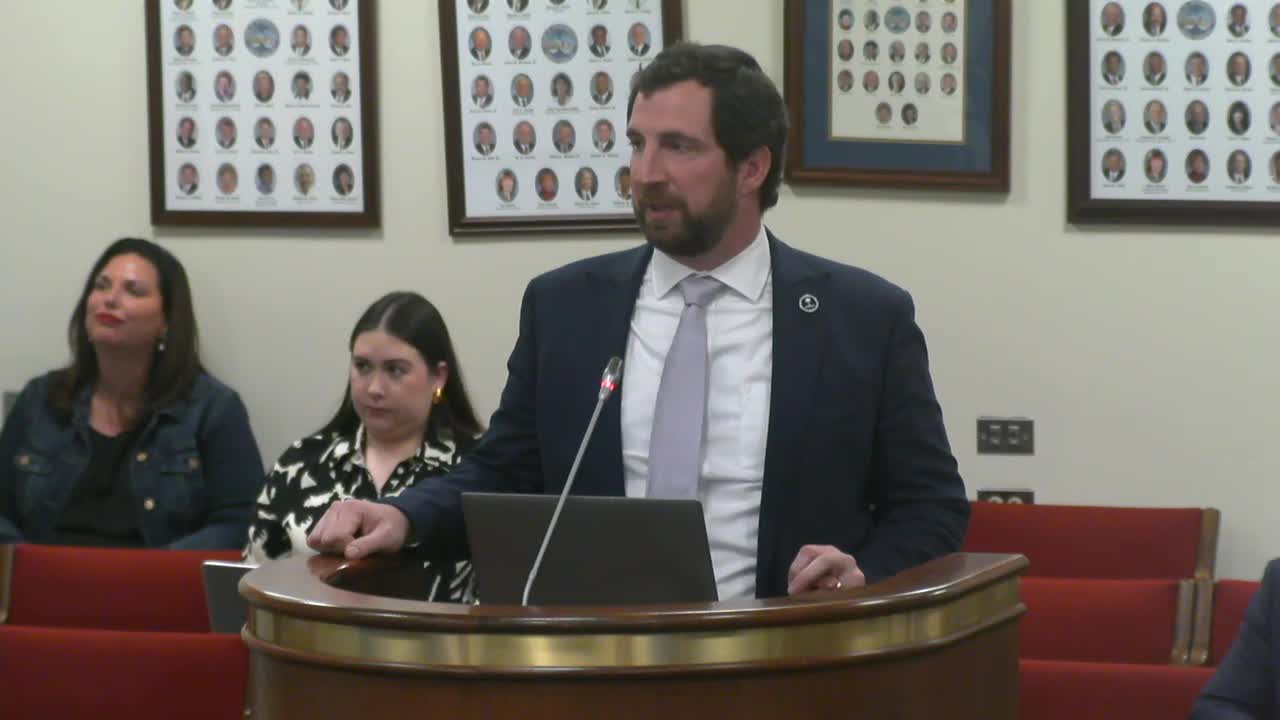State Department of Education outlines strategic plan, asks legislature for new funds to expand literacy, math and teacher pay
Get AI-powered insights, summaries, and transcripts
Subscribe
Summary
Philip Cease of the South Carolina Department of Education presented a four‑part strategic plan and a budget request that includes raising starting teacher pay to $50,000, funds for high‑quality instructional materials, summer reading camps and safety infrastructure
Philip Cease, director of governmental affairs for the South Carolina Department of Education, presented the department’s strategic plan to the House Education and Public Works Committee and outlined a multi‑year “moonshot” goal and a 2025 budget request.
The department’s stated ‘‘moonshot’’ aims for at least 75 percent of students to be at or above grade level by 2030. Cease described four three‑year objectives — strengthening evidence‑based foundational instruction (including the Science of Reading and Palmetto Math Project), expanding career pathways and work‑based learning, supporting local leaders to address behavior and mental health, and launching a statewide community engagement program.
Funding requests highlighted in the presentation included a proposal to increase starting teacher salary to $50,000 (a $200 million recurring request), $20 million recurring and $95 million nonrecurring for high‑quality instructional materials (math and ELA), $13 million for Career and Technical Education rural initiatives, and expanded funding for summer reading camps intended to reduce retention by helping students reach grade level. Cease said nearly $1.6 billion in new state investment has gone to K‑12 since 2018–19 and that teacher salaries have risen roughly 47 percent in that period.
On literacy and early grades, Cease said the state has funded LETRS (Language Essentials for Teachers of Reading and Spelling) professional learning using nearly $40 million to train K‑3 teachers; the department reported about 20,000 teachers were in the pipeline or had completed LETRS and that Read to Succeed provisions will affect retention decisions for third graders who do not meet state benchmarks.
Cease also described the State Board of Education’s model policy on student cell phone use (branded as “Free to Focus”), required by a proviso in the budget bill. The model policy requires local boards to adopt limits on “access” to devices during the school day and allows local discretion on storage and exceptions for health or safety needs; the proviso conditions local receipt of state classroom aid on adopting a policy or equivalent plan.
On school safety and facilities, Cease said the department requested $100 million recurring for a rural infrastructure bank for schools and charter schools, plus funding for facility upgrades such as window film, locks and bus leases; the department also listed cell phone storage hardware as an eligible expenditure under safe‑schools funding.
Committee members asked whether districts or teachers are using artificial intelligence for individualized tutoring; Cease said he was aware of at least one district using AI under an innovation grant and offered to follow up with contact information. Members also asked about the schedule and pilot status for the Palmetto Math Project; Cease said pilots have run and the department hopes to expand based on results.
Cease closed by encouraging members to review the department’s dashboards and resources (ed.sc.gov/literacy) and noting the superintendent’s emphasis on a community volunteer program that lets state employees spend time volunteering in local schools.
The committee requested copies of slides and follow‑up contacts and data; no formal committee votes occurred during the presentation.
